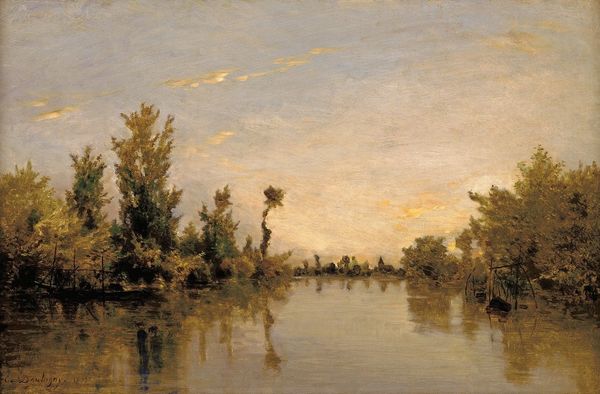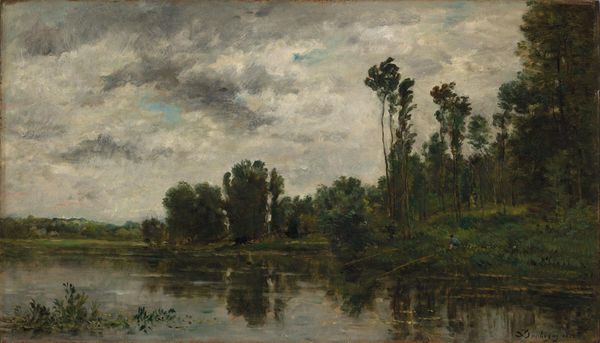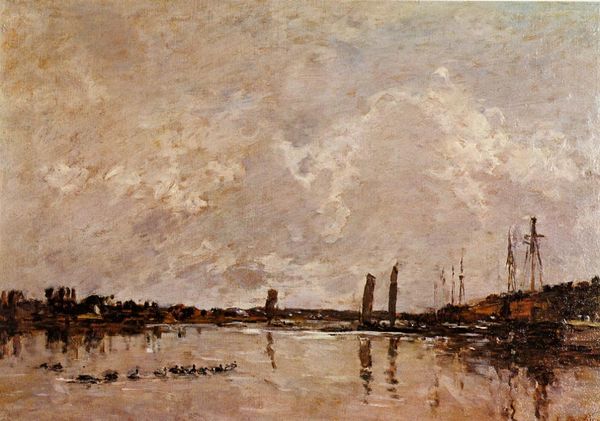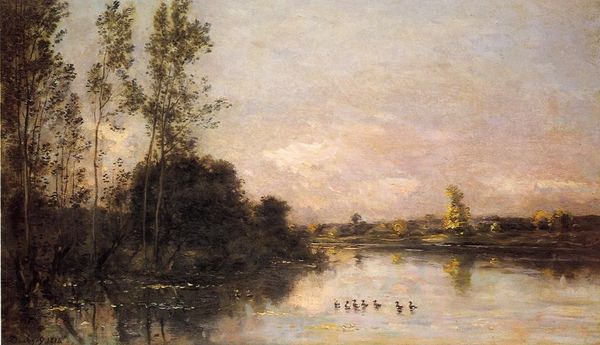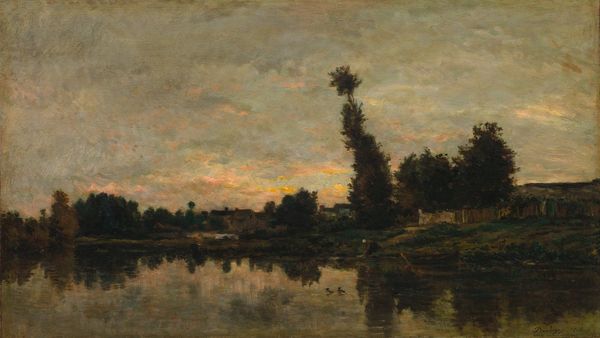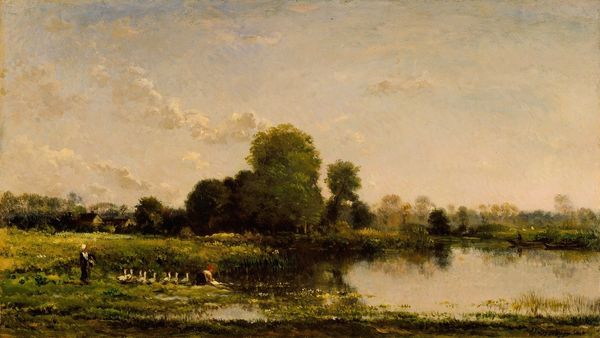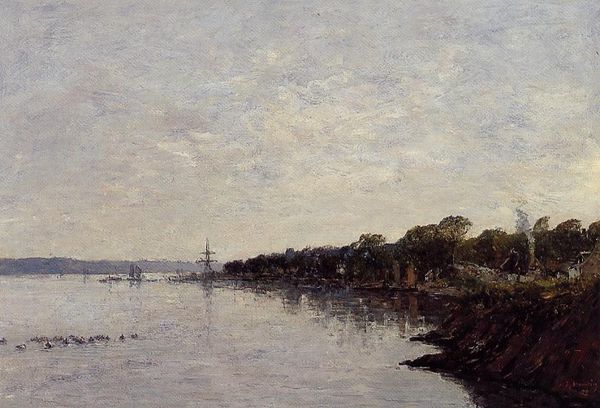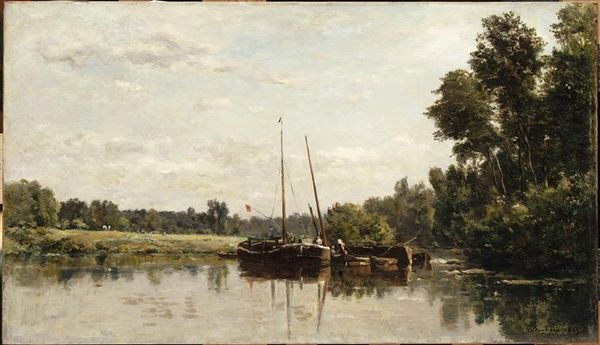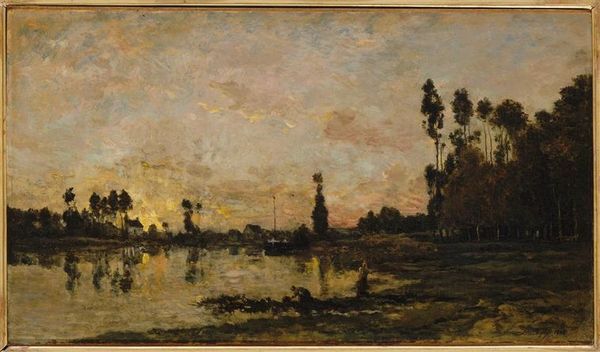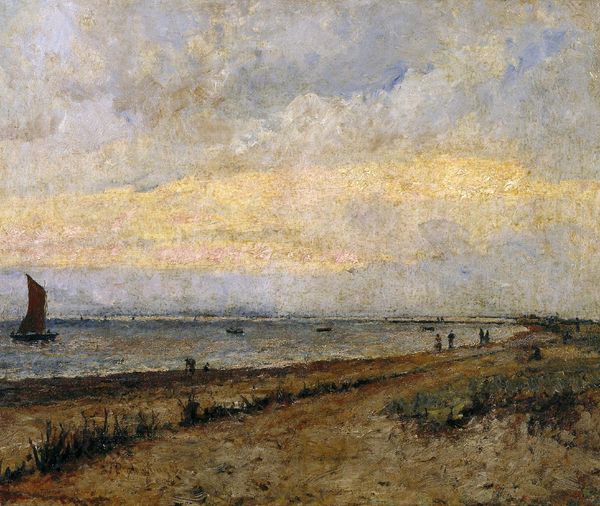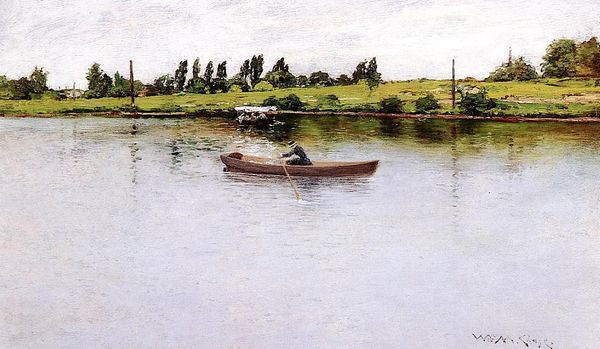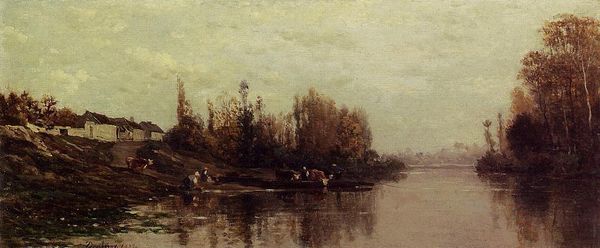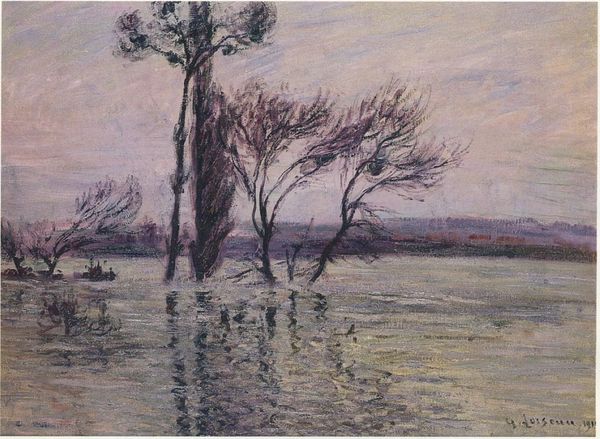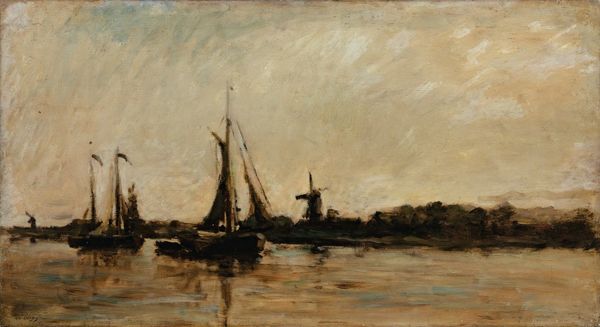
Copyright: Public domain
Eugène Boudin painted this scene of Caudebec-en-Caux on the banks of the Seine using oil on canvas. Boudin was a master of capturing the fleeting effects of light and atmosphere, and he does so here with a loose, sketch-like technique. Look closely, and you’ll see how the material qualities of oil paint – its viscosity, its capacity for blending, and its reflective surface – all contribute to the painting's appearance. Notice how Boudin uses thin washes of paint to create the misty sky, and thicker, more textured strokes to define the trees and boats. The paint itself seems to evoke the dampness of the air and the shimmering surface of the water. Boudin’s attention to the nuances of weather and light can be seen as part of a wider shift in the 19th century toward a more direct and sensory experience of the world. But it’s also important to remember that painting itself is a form of labor. Artists like Boudin relied on the skills of craftsmen who prepared their canvases and ground their pigments, connecting the world of art to wider networks of production and consumption. By focusing on the materials and processes of artmaking, we can gain a deeper appreciation of the social and cultural significance of paintings like this one.
Comments
No comments
Be the first to comment and join the conversation on the ultimate creative platform.
